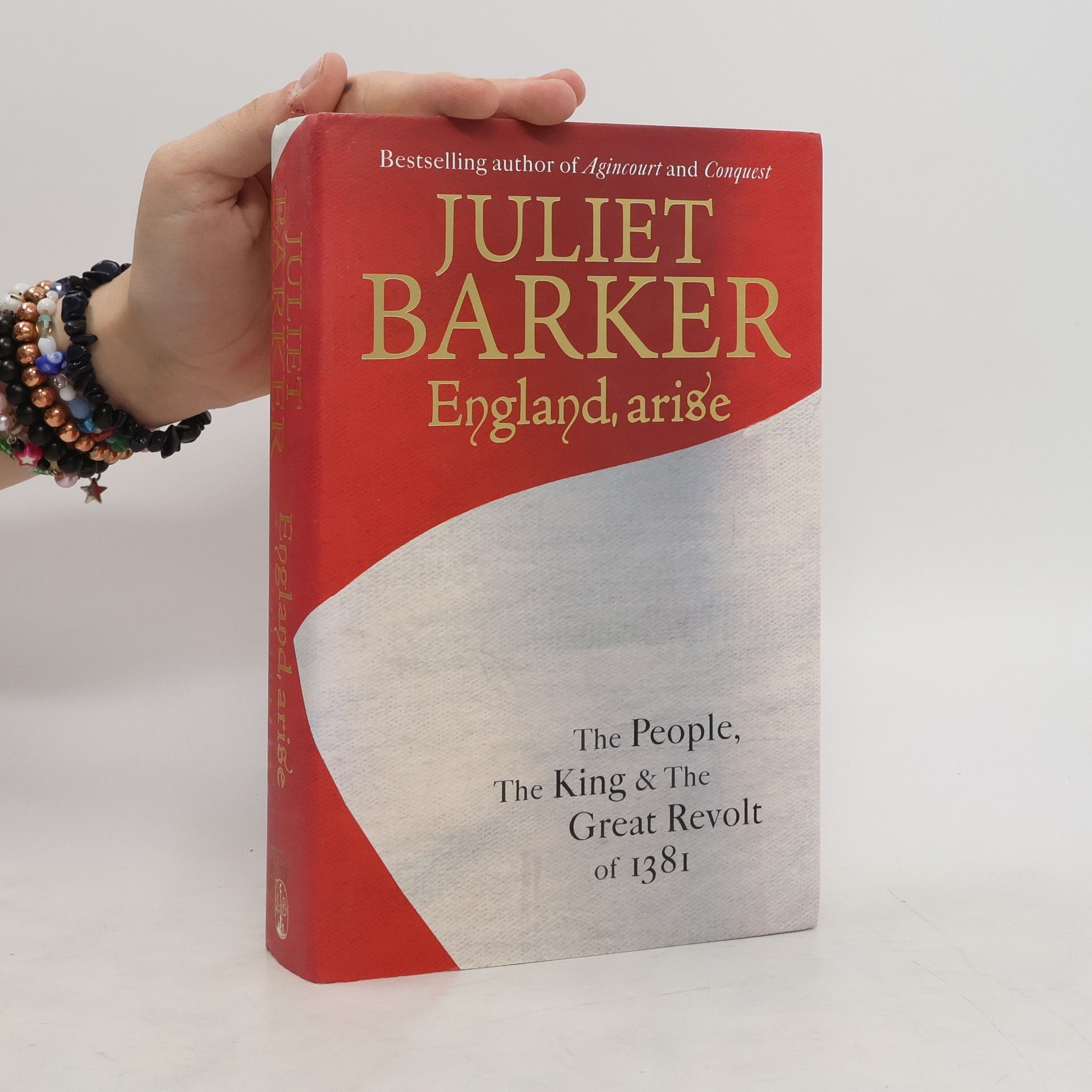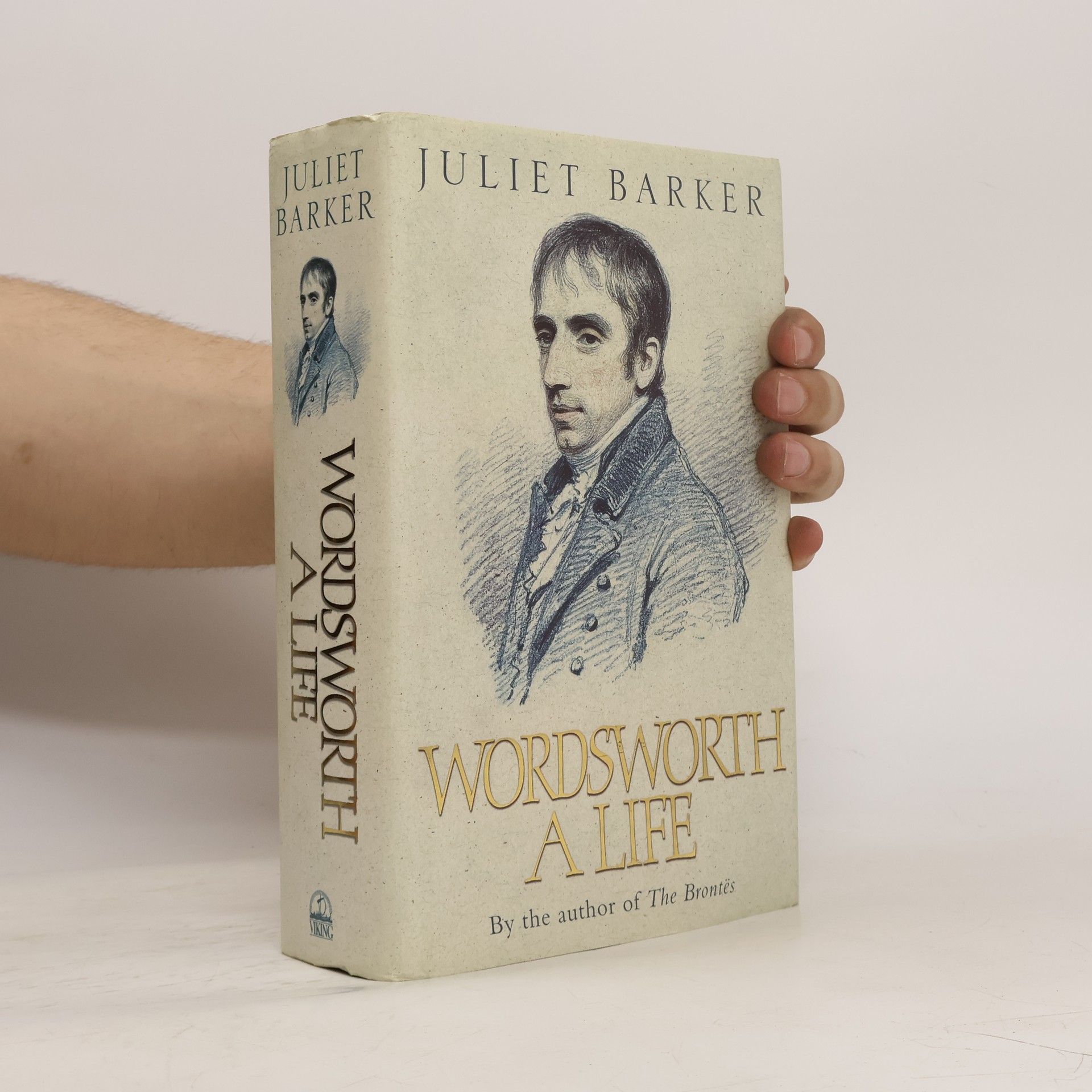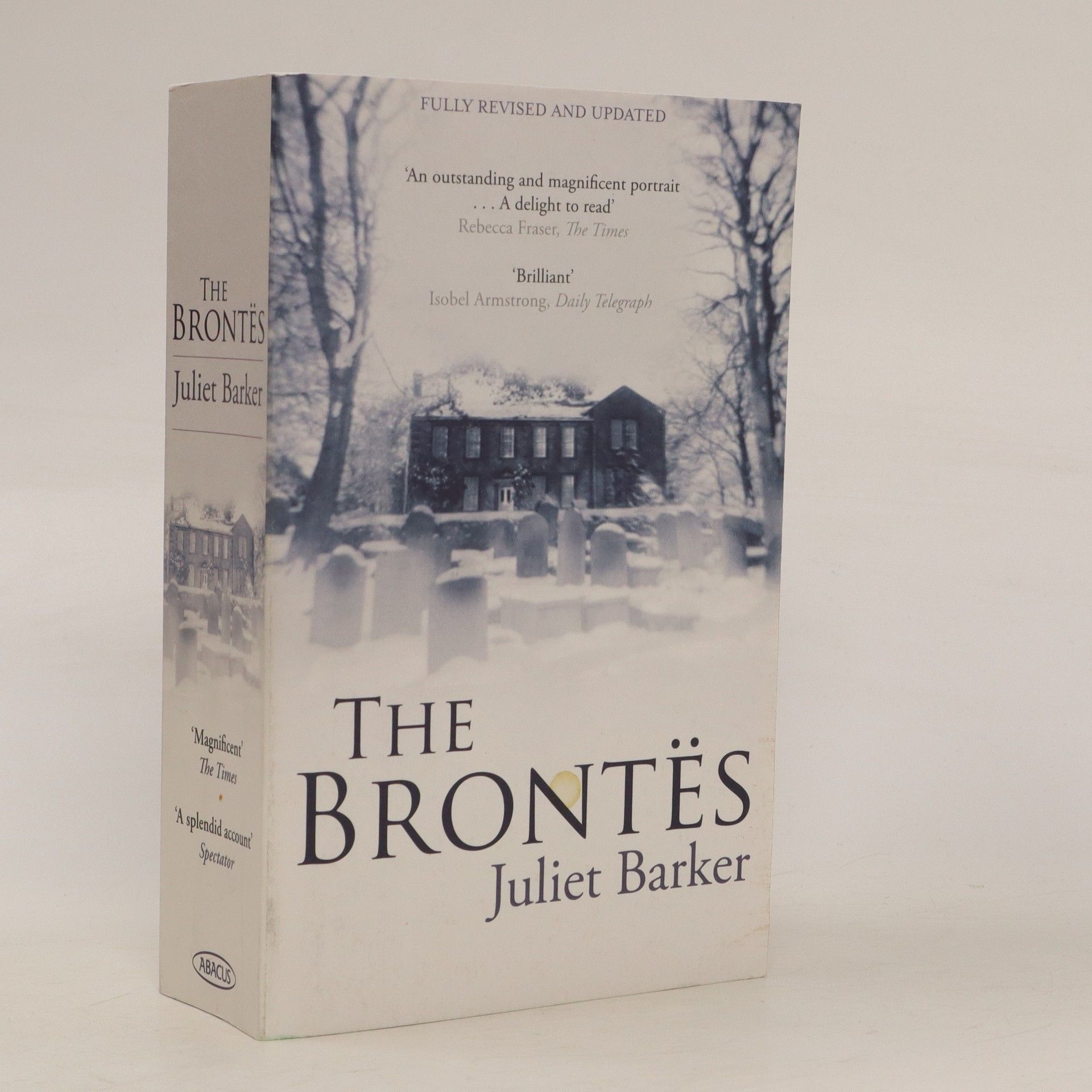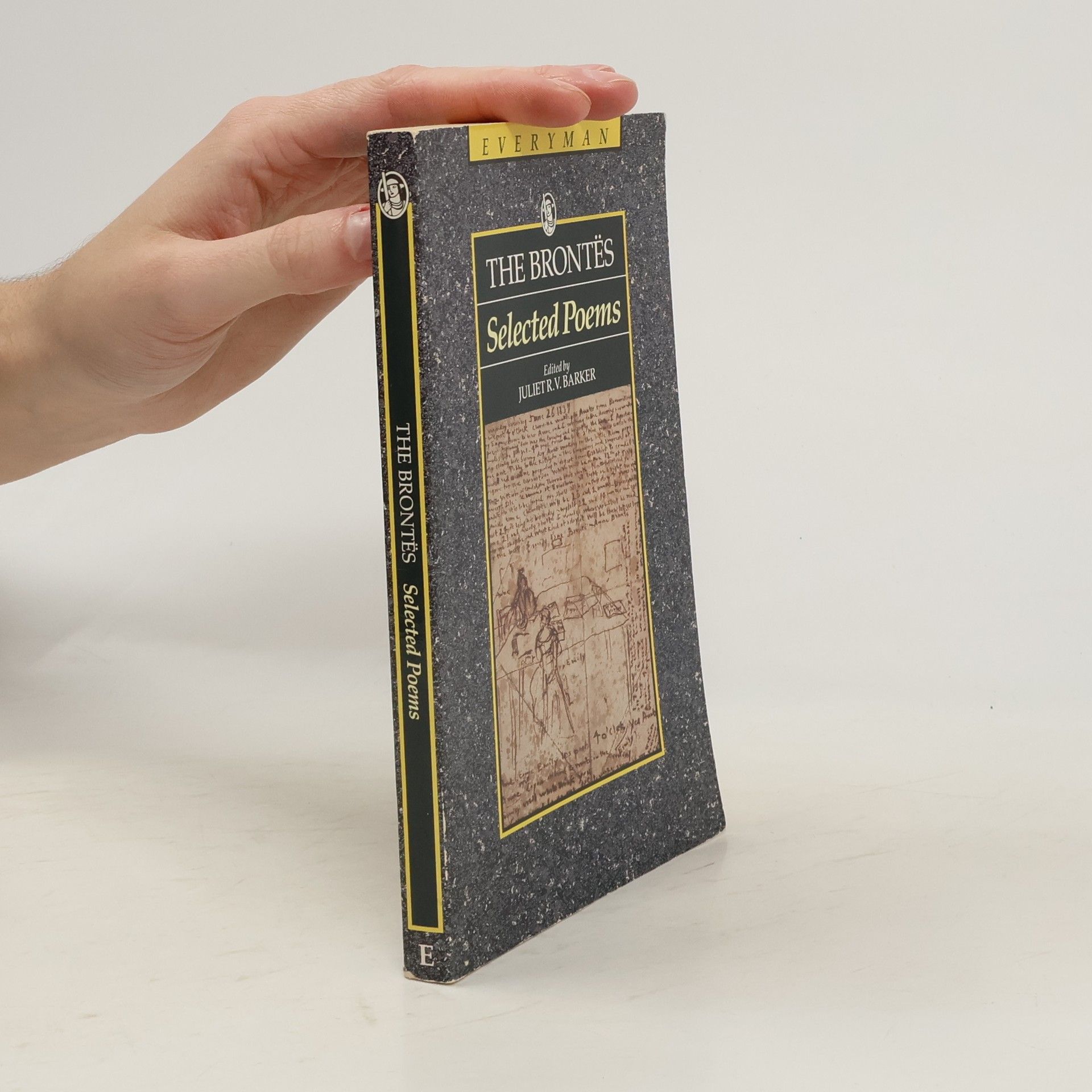Juliet R. V. Barker Bücher
Juliet R. V. Barker ist eine britische Historikerin, die sich auf das Mittelalter und literarische Biografien spezialisiert hat. Ihre Arbeiten tauchen tief in historische Epochen und literarische Persönlichkeiten ein und konzentrieren sich auf Themen wie mittelalterliche Turniere und das Leben bedeutender literarischer Gestalten. Barkers Herangehensweise zeichnet sich durch akribische Forschung aus, die in einem fesselnden, erzählerischen Stil präsentiert wird, der die Leser in die Vergangenheit entführt. Ihre Werke erwecken Geschichte und literarische Sujets zum Leben und bieten den Lesern neue Perspektiven auf bekannte Figuren und Ereignisse.





Everyman's Library: Selected Poems Brontes
- 192 Seiten
- 7 Lesestunden
The Bront sisters won immortality through their novels, but they and their brother Branwell were also outstanding poets. This generous selection of their best poems gives readers access to the personal feelings and observations woven into their great novels, from Anne's loneliness as a governess to the thrill Emily felt on the wild moors.
The Brontes
- 1184 Seiten
- 42 Lesestunden
The story of the tragic Bronte family is familiar to everyone: we all know about the half-mad, repressive father, the drunken, drug-addicted wastrel of a brother, wild romantic Emily, unrequited Anne and 'poor Charlotte'. Or do we? These stereotypes of the popular imagination are precisely that - imaginary - created by amateur biographers from Mrs Gaskell onwards who were primarily novelists, and were attracted by the tale of an apparently doomed family of genius. Juliet Barker's landmark book was the first definitive history of the Brontes. It demolishes myths, yet provides startling new information that is just as compelling - but true. Based on first-hand research among all the Bronte manuscripts, many so tiny they can only be read by magnifying glass, and among contemporary historical documents never before used by Bronte biographers, this book is both scholarly and compulsively readable. THE BRONTES is a revolutionary picture of the world's favourite literary family. 'As a work of scholarship it is briliant ...For those with a passion for the Brontes, or for Victoriana, or for sheer wealth of historical minutiae, it is a stupendous read' INDPENDENT ON SUNDAY
Wordsworth. A Life
- 971 Seiten
- 34 Lesestunden
"In what is the first biography of Wordsworth to treat the latter part of his life as fully as the first, Juliet Barker employs the skills that made The Brontes a bestseller. Balancing meticulous research with a readable style, and scrupulous objectivity with an understanding of her subject, she reveals not only the public figure who was courted and reviled in equal measure but also the complex, elusive, private man behind that image. Drawing on unpublished sources, she vividly re-creates the intimacy of Wordsworth's domestic circle, showing the love, laughter, loyalty and tragedies which bound them together. Far from being the remote, cold, solitary figure of legend, Wordsworth emerges from this outstanding biography as a passionate, vibrant man who lived for his family, his poetry and his beloved Lakeland. His legacy, as a poet and as the spiritual founder of the conservation movement, remains with us today."--Jacket
England, Arise
The People, the King and the Great Revolt of 1381
Written with the fluency readers have come to expect from Juliet Barker, 1381: The Year of the Peasants' Revolt provides an account of the first great popular uprising in England and its background, and paints on a broad canvas a picture of English life in medieval times. Skeptical of contemporary chroniclers' accounts of events, Barker draws on the judicial sources of the indictments and court proceedings that followed the rebellion. This emphasis offers a fresh perspective on the so-called Peasants' Revolt and gives depth and texture to the historical narrative. Among the book's arguments are that the rebels believed they were the loyal subjects of the king acting in his interests, and that the boy-king Richard II sympathized with their grievances.Barker tells how and why a diverse and unlikely group of ordinary men and women from every corner of England--from servants and laborers living off wages, through the village elite who served as bailiffs, constables, and stewards, to the ranks of the gentry--united in armed rebellion against church and state to demand a radical political agenda. Had it been implemented, this agenda would have transformed English society and anticipated the French Revolution by four hundred years. 1381: The Year of the Peasants' Revolt is an important reassessment of the uprising and a fascinating, original study of medieval life in England's towns and countryside.